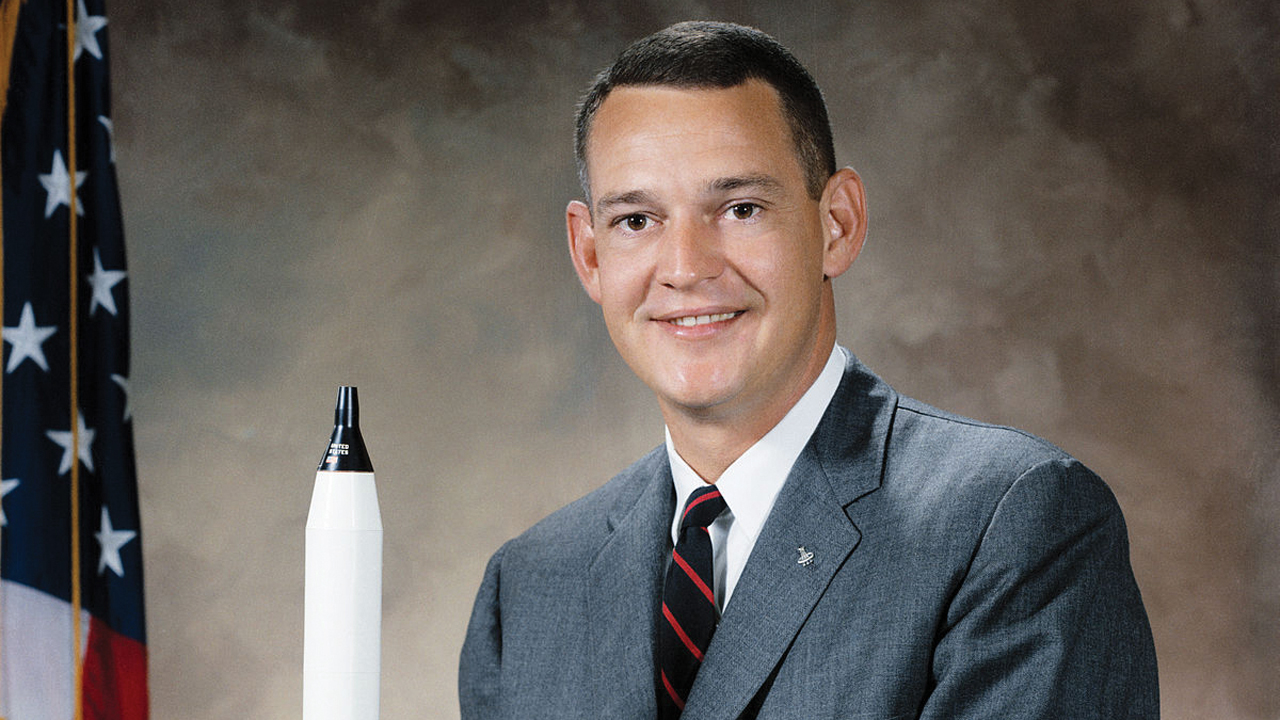The War Eagle Almost Landed
Published: Jul 26, 2022 12:00 AM
By Jeremy Henderson
It would be perfect. The Eagle would land. The “War Eagle” would be heard. It wasn’t a joke. It was a promise. And Cliff “C.C.” Williams’ friends believed him.
After all, the lunar module that the 1954 Auburn mechanical engineering graduate spent his days perfecting had been dubbed the Eagle, and he was still a huge football fan. He listened to or watched every game he could. He kept up. When he moved to Houston in the fall of 1963, he quickly got involved in the city’s alumni club, which was more than thrilled to count a famous astronaut in its ranks.
There may have been 13 men named to NASA’s third astronaut class, Buzz Aldrin among them, but Williams got the most press. Reporters loved him. He was tall, handsome, and he made for easy copy. For the moment, he was America’s only space-bound bachelor, a condition he remedied the following summer by marrying a Cypress Garden Aquamaid. News of the wedding made the cover of the New York Daily News.
But Williams was after bigger headlines.
In 1966, after being tapped as the backup pilot for Gemini 10, his work became almost entirely devoted to preparing for Apollo 11, the mission that would take three astronauts to the moon and place two of them on the surface.
Williams, a Marine Corps major, hoped he would be one of them, and he made no bones about it, not in front of friends, not in front of cameras — he wanted to be first.
That was the detail that made the lede in the Oct. 6, 1967, Associated Press story on how Williams’ wish would never come true.
“An American astronaut who said he wanted to be first on the moon and specialized in the craft that will make the trip was killed Thursday when his T-38 jet trainer plowed into a hilltop near the Florida-Georgia border.”
At the time of his death, Williams, 35, was detouring to Mobile to visit his ailing father after attending a NASA meeting about the lunar module at Cape Canaveral. His jet created a 15-foot crater in the heavily wooded area, but dove so straight to the ground it managed to completely avoid the pine trees. Loss of oxygen was blamed.
News of the tragedy made headlines across the country.
“C.C. was like everyone else in the program,” Williams’ fellow Auburn graduate and fellow astronaut Ken Mattingly, ’58 aerospace engineering, told The Auburn Plainsman after Williams’ death. “It was his entire life. He would have worked as hard to see someone else go to the moon as to make the journey himself.”
But no one would have had a better opening line, according to Volume 113 – Part 21 of the October 1967 Congressional Record:
“If Marine Corps Major Clifton C. Williams Jr. had been the first astronaut to land on the moon, the first human words ever spoken there would have been ‘War Eagle.’”
Media Contact: ,
Cliff "C.C" Williams, '54 mechanical engineering

